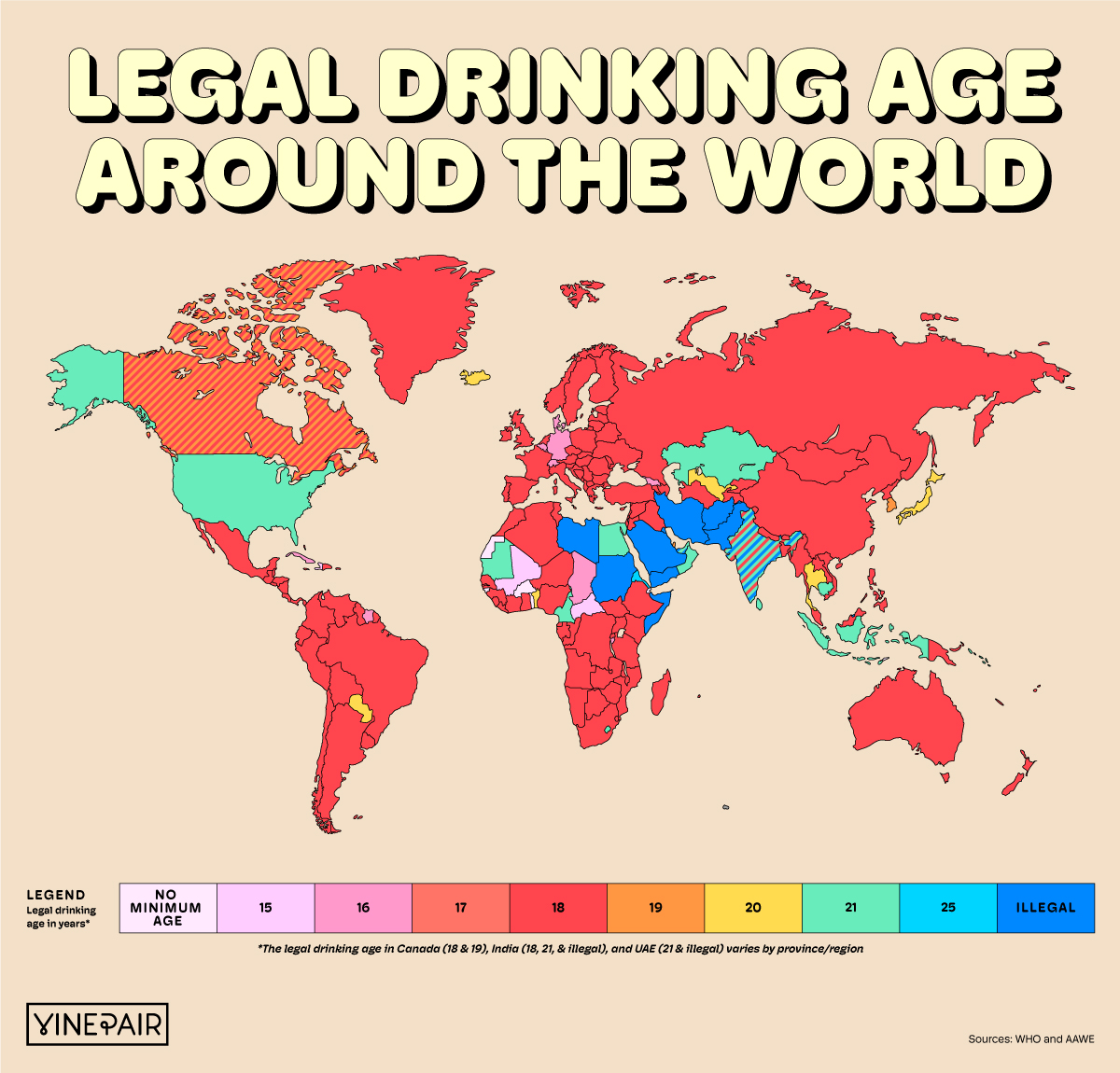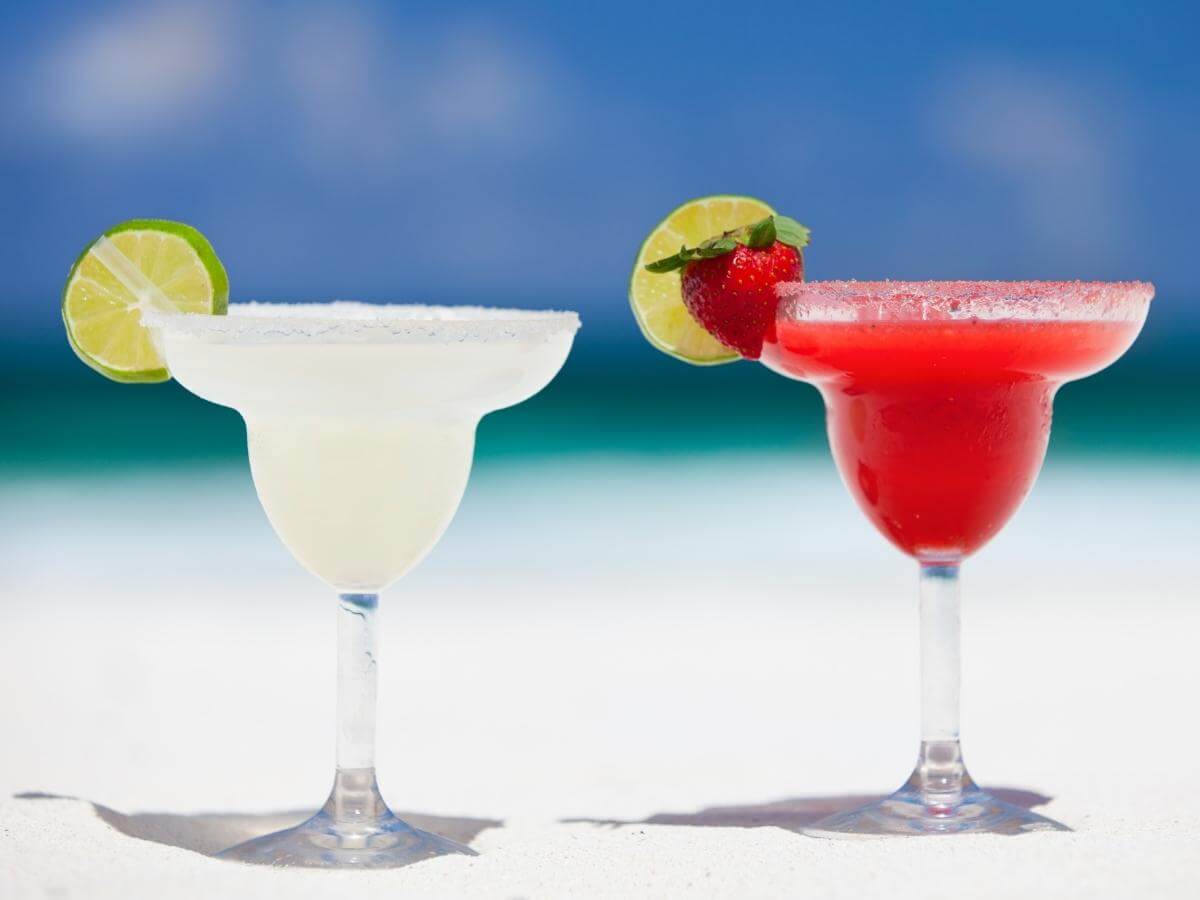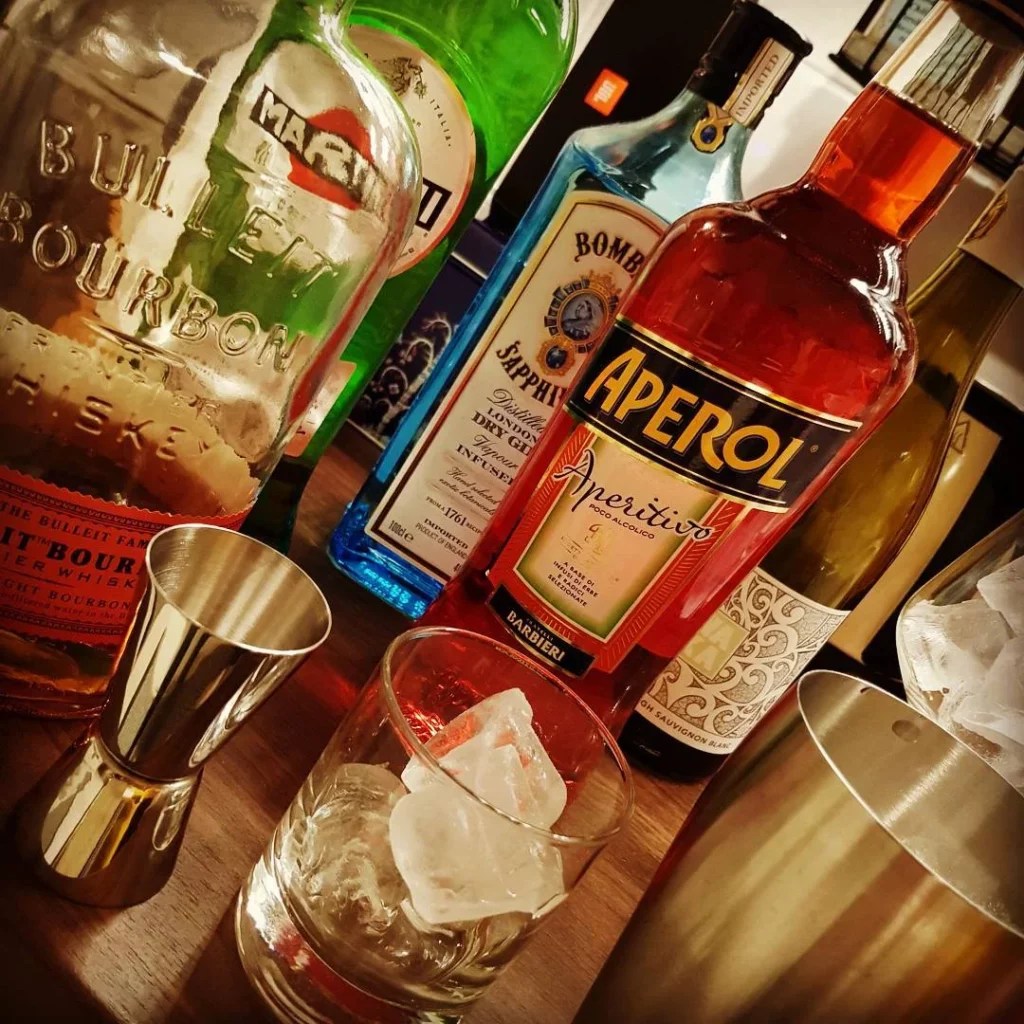Jamaica enforces a legal drinking age of 18, aligning with the global standard for responsible alcohol consumption.
The legal drinking age in Jamaica is 18 years old, which means that individuals under the age of 18 are prohibited from purchasing, possessing, or consuming alcoholic beverages. This law aims to protect young people from the potential harms associated with underage drinking, such as impaired judgment, increased risk-taking behaviors, and alcohol-related accidents.
Jamaica's legal drinking age is consistent with the recommendations of the World Health Organization (WHO), which suggests that countries establish a minimum legal drinking age of 18 or higher to reduce alcohol-related harms among youth. Research has shown that underage drinking can have lasting negative effects on brain development, physical health, and social well-being.
By setting the legal drinking age at 18, Jamaica aims to promote responsible drinking habits and create a safer environment for its citizens.
what's the legal drinking age in jamaica
Introduction
The legal drinking age is a crucial aspect of alcohol regulation, as it sets the minimum age at which individuals are legally permitted to purchase, possess, and consume alcoholic beverages. Various factors influence the legal drinking age, including cultural norms, public health concerns, and international recommendations.
Key Aspects
- Public Health: Underage drinking can lead to a range of health risks, including increased likelihood of accidents, risky sexual behavior, and alcohol-related disorders. Setting a legal drinking age aims to protect young people from these potential harms.
- Brain Development: The human brain continues to develop until the early to mid-20s. Alcohol consumption during this critical period can interfere with brain development and increase the risk of cognitive impairment.
- Social Responsibility: Establishing a legal drinking age promotes responsible drinking habits and discourages excessive alcohol consumption among young people. It also helps to create a safer environment for all.
- International Standards: Many countries around the world have adopted a legal drinking age of 18 or higher, aligning with recommendations from the World Health Organization (WHO) to reduce alcohol-related harms among youth.
Discussion
The legal drinking age is a complex issue with both proponents and opponents. Those who support the legal drinking age argue that it is necessary to protect young people from the negative consequences of underage drinking. They point to research showing that underage drinking is associated with increased risk of accidents, risky sexual behavior, and alcohol-related disorders. Opponents of the legal drinking age argue that it is an ineffective way to prevent underage drinking and that it infringes on the rights of young adults. They also argue that setting the legal drinking age at 18 does not take into account the fact that some young people may be mature enough to handle alcohol responsibly at a younger age.
Ultimately, the decision of whether or not to set a legal drinking age is a complex one that must be made by each individual country. There is no easy answer, and there are valid arguments to be made on both sides of the issue.
what's the legal drinking age in jamaica
The legal drinking age in Jamaica, set at 18 years old, plays a crucial role in regulating alcohol consumption and promoting responsible drinking habits among its citizens. Here are six key aspects related to "what's the legal drinking age in Jamaica":
- Public Health Protection: Shields young people from the potential health risks associated with underage drinking.
- Brain Development: Safeguards the developing brains of young individuals from the harmful effects of alcohol.
- Social Responsibility: Encourages responsible drinking habits and discourages excessive alcohol consumption.
- International Standards: Aligns with global recommendations to reduce alcohol-related harms among youth.
- Legal Consequences: Establishes clear legal boundaries and consequences for underage drinking.
- Cultural Norms: Reflects the societal values and norms regarding alcohol consumption.
These aspects are interconnected and collectively contribute to the effectiveness of the legal drinking age in Jamaica. By protecting public health, fostering responsible drinking habits, and adhering to international standards, the legal drinking age helps to create a safer and healthier environment for all.
Public Health Protection
Establishing a legal drinking age is crucial for safeguarding the health and well-being of young people. Underage drinking poses significant health risks, including increased likelihood of accidents, risky sexual behavior, and alcohol-related disorders. By setting a legal drinking age, Jamaica takes proactive steps to protect its youth from these potential harms.
Research has consistently shown that underage drinking is associated with a range of negative health outcomes. Young people who drink alcohol are more likely to engage in risky behaviors, such as driving under the influence or unprotected sex, which can lead to injuries, unplanned pregnancies, and sexually transmitted infections. Additionally, underage drinking can interfere with brain development, potentially leading to cognitive impairment and mental health issues later in life.
The legal drinking age in Jamaica serves as a protective measure, reducing the prevalence of underage drinking and its associated health risks. By delaying the age at which young people can legally access alcohol, the government aims to promote responsible drinking habits and create a safer environment for all.
Brain Development
The legal drinking age in Jamaica plays a crucial role in protecting the developing brains of young individuals from the harmful effects of alcohol. Alcohol consumption during adolescence can disrupt the normal development of the brain, leading to cognitive impairment and an increased risk of mental health disorders later in life.
- Impaired Cognitive Function: Alcohol can interfere with the development of neural pathways in the brain, affecting memory, attention, and decision-making abilities. Underage drinking can hinder academic performance and overall cognitive development.
- Increased Risk of Mental Health Disorders: Studies have shown a correlation between underage drinking and an increased risk of developing mental health disorders such as depression, anxiety, and schizophrenia. Alcohol use during adolescence can alter brain chemistry and make individuals more susceptible to these conditions.
- Structural Brain Changes: Excessive alcohol consumption by young people can lead to structural changes in the brain, including reduced volume in the hippocampus, a region associated with memory and learning.
- Long-Term Consequences: The harmful effects of alcohol on the developing brain can have long-term consequences, impacting an individual's education, career, and overall well-being.
By setting a legal drinking age, Jamaica aims to protect its young citizens from these potential harms and promote healthy brain development. Delaying alcohol consumption until the brain has fully matured helps to minimize the risks associated with underage drinking and fosters a healthier future for the nation's youth.
Social Responsibility
The legal drinking age in Jamaica is a key component of the nation's efforts to promote responsible drinking habits and discourage excessive alcohol consumption. Establishing a legal drinking age sends a clear message that underage drinking is not tolerated and that young people need to be protected from the potential harms associated with alcohol abuse.
Social responsibility is a crucial aspect of a healthy and functioning society. It involves individuals taking responsibility for their actions and considering the impact of their choices on others. In the context of alcohol consumption, social responsibility means drinking responsibly and avoiding excessive alcohol intake. This includes being aware of the risks associated with underage drinking, such as impaired judgment, increased risk-taking behavior, and alcohol-related accidents.
By setting a legal drinking age, Jamaica encourages responsible drinking habits and discourages excessive alcohol consumption among young people. This helps to create a safer and healthier environment for all citizens. When young people are educated about the risks of underage drinking and provided with alternative activities, they are more likely to make responsible choices about alcohol consumption.
In conclusion, the legal drinking age in Jamaica plays a vital role in promoting social responsibility and reducing alcohol-related harms among young people. By establishing a clear legal boundary, Jamaica sends a strong message that underage drinking is not acceptable and that responsible drinking habits are essential for a healthy and productive society.
International Standards
The legal drinking age in Jamaica is in line with international standards and recommendations aimed at reducing alcohol-related harms among young people. The World Health Organization (WHO) recommends that countries establish a minimum legal drinking age of 18 or higher to protect youth from the negative consequences of alcohol consumption.
- Public Health Concerns: Underage drinking is associated with increased risk of accidents, injuries, and alcohol-related disorders. Setting a legal drinking age helps to reduce these risks by delaying the age at which young people can legally access alcohol.
- Brain Development: Alcohol consumption can impair brain development in young people, affecting cognitive function and increasing the risk of mental health problems later in life. A legal drinking age helps to protect the developing brains of young individuals.
- Social Norms: Establishing a legal drinking age sends a clear message that underage drinking is not acceptable and helps to shape societal norms around alcohol consumption. This can contribute to a reduction in overall alcohol-related harms.
- Global Collaboration: By aligning with international standards, Jamaica demonstrates its commitment to global efforts to reduce alcohol-related harms and promote public health.
In conclusion, the legal drinking age in Jamaica is consistent with international recommendations and is an important measure to protect young people from the harmful effects of alcohol consumption. It contributes to public health, safeguards brain development, shapes social norms, and fosters global collaboration in reducing alcohol-related harms.
Legal Consequences
The legal drinking age in Jamaica is not merely a recommendation but a law with real-world consequences for underage drinkers and those who provide them with alcohol. These consequences serve as a deterrent against underage drinking and reinforce the importance of adhering to the legal drinking age.
- Penalties for Underage Drinkers
Individuals under the legal drinking age who are caught consuming or attempting to purchase alcohol may face legal penalties, such as fines or community service. These penalties aim to discourage underage drinking and hold young people accountable for their actions.
- Penalties for Providing Alcohol to Minors
Adults who knowingly provide alcohol to minors can also face legal consequences, including fines, imprisonment, or loss of their liquor license. This holds adults accountable for their role in underage drinking and sends a clear message that providing alcohol to minors is not tolerated.
- Enforcement and Education
Law enforcement plays a crucial role in enforcing the legal drinking age and educating the public about the consequences of underage drinking. Regular checks at establishments that sell alcohol help to deter illegal sales to minors, and educational campaigns raise awareness about the risks of underage drinking.
The legal consequences associated with underage drinking in Jamaica underscore the seriousness of this issue and contribute to the overall effectiveness of the legal drinking age. By establishing clear legal boundaries and penalties, Jamaica discourages underage drinking, promotes responsible behavior, and protects the health and well-being of its youth.
Cultural Norms
The legal drinking age in Jamaica is closely intertwined with the nation's cultural norms and values surrounding alcohol consumption. Cultural norms play a significant role in shaping societal attitudes and behaviors towards alcohol, influencing the establishment and enforcement of the legal drinking age.
In Jamaica, the legal drinking age of 18 reflects the cultural norm of viewing alcohol consumption as a privilege reserved for adults. This norm is rooted in the Jamaican cultural emphasis on respect for authority, adherence to laws, and responsible behavior. By setting the legal drinking age at 18, Jamaica reinforces the cultural expectation that young people should refrain from alcohol consumption until they reach adulthood.
Furthermore, the legal drinking age serves as a protective measure, aligning with the cultural norm of safeguarding youth from potential harms. Jamaican society places a high value on the well-being and development of young people. The legal drinking age helps to protect young individuals from the negative consequences of underage drinking, such as impaired judgment, increased risk-taking behaviors, and alcohol-related accidents.
In conclusion, the legal drinking age in Jamaica is a reflection of the nation's cultural norms and values regarding alcohol consumption. It reinforces the cultural expectation of responsible behavior, protects young people from potential harms, and contributes to the overall well-being of Jamaican society.
Frequently Asked Questions about the Legal Drinking Age in Jamaica
This section addresses common questions and misconceptions surrounding the legal drinking age in Jamaica, providing clear and informative answers.
Question 1: What is the legal drinking age in Jamaica?
The legal drinking age in Jamaica is 18 years old. This means that individuals under the age of 18 are prohibited by law from purchasing, possessing, or consuming alcoholic beverages.
Question 2: Why is the legal drinking age in Jamaica set at 18?
The legal drinking age of 18 in Jamaica is in line with global recommendations and reflects the nation's commitment to protecting young people from the potential harms associated with underage drinking. Alcohol consumption can impair brain development, increase the risk of accidents and injuries, and contribute to social and behavioral problems. Setting the legal drinking age at 18 helps to safeguard the health and well-being of Jamaican youth.
Summary: The legal drinking age in Jamaica is 18 years old, aligning with international standards and prioritizing the protection of young people from the negative consequences of underage drinking.
Conclusion
The legal drinking age in Jamaica, set at 18 years old, is a crucial measure to safeguard the health and well-being of young people. It aligns with international standards and reflects the nation's commitment to protecting its youth from the potential harms of underage drinking. The legal drinking age serves as a deterrent against underage alcohol consumption, promotes responsible drinking habits, and contributes to a safer and healthier society for all Jamaicans.
It is essential to continue raising awareness about the risks associated with underage drinking and to encourage young people to make healthy choices. By working together, we can create a society where young people are empowered to make informed decisions and live healthy, fulfilling lives.
Article Recommendations



ncG1vNJzZmiclaK8b7HNnqmgoaOirrPAjaemaKqVobKiv8SsaGlnp52utb%2BMrZ%2BeZZyatKK4jJ2poqabnruoecCgnGahnmK3ornAopqaZpipuq0%3D